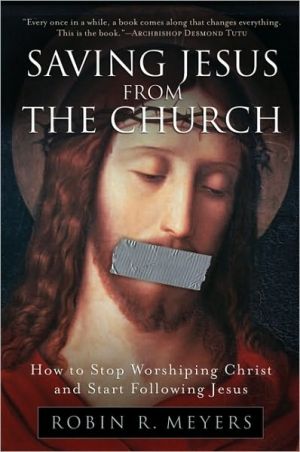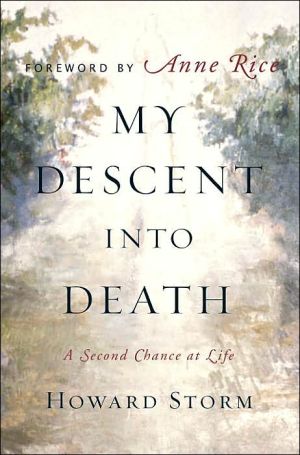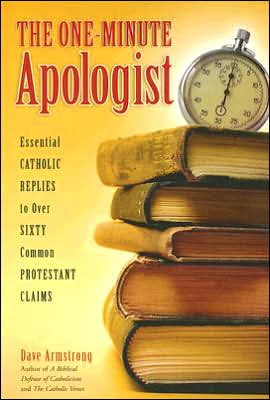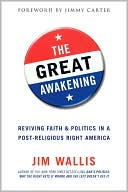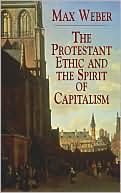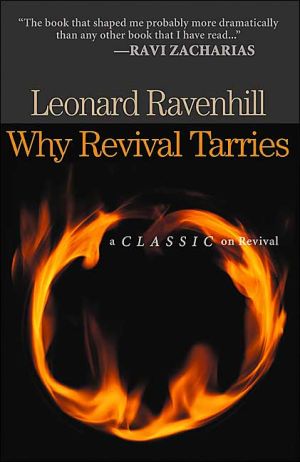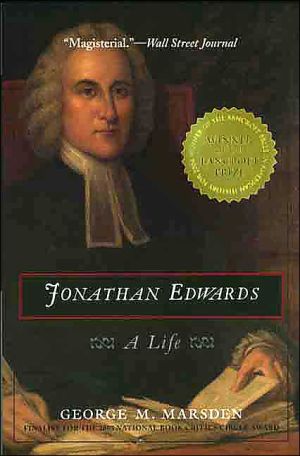God's Call: Moral Realism, God's Commands, and Human Autonomy
There has been a debate between modern ethicists who see moral judgments as objectively corresponding to a moral reality independent of human opinion and those who insist that moral judgments are essentially expressions of our will. In this excellent philosophical work John Hare outlines a theory that combines the merits of both views, arguing that what makes something right is that God calls us to it.\ In the first chapter Hare gives a selective history of the sustained debate within...
Search in google:
There has been a debate between modern ethicists who see moral judgments as objectively corresponding to a moral reality independent of human opinion and those who insist that moral judgments are essentially expressions of our will. In this excellent philosophical work John Hare outlines a theory that combines the merits of both views, arguing that what makes something right is that God calls us to it.In the first chapter Hare gives a selective history of the sustained debate within Anglo-American philosophy over the last century between moral realists and moral expressivists. Best understood as a disagreement about how objectivity and subjectivity are related in value judgment, this debate is of particular interest to Christians, who necessarily feel pulled in both directions. Christians want to say that value is created by God and exists whether we recognize it or not, but they also want to say that when we value something, our hearts' fundamental commitments are also involved. Hare suggests "prescriptive realism" as a way to bring both perspectives together. The second chapter examines the divine command theory of John Duns Scotus, looking particularly at the relationship that Scotus established between God's commands, human nature, and human will. Hare shows that a Calvinist version of the divine command theory of obligation can be defended via Scotus against natural law theory as well as against contemporary challenges. A significant theme treated here is the view that the Fall disordered our natural inclinations, rendering them useless as an authoritative source of guidance for right living. In the last chapter Hare moves to the key philosophical juncture between the medieval period and our own time -- the moral theory of Immanuel Kant in the late eighteenth century. Modern moral philosophy has largely taken Kant's work as a refutation of divine command theory and a refocusing of the discussion on human autonomy. Hare shows that Kant was in fact not arguing against the kind of divine command theory that Hare supports. He discusses what Kant meant by saying that we should recognize our duties as God's commands, and he defends a notion of human autonomy as appropriation. Featuring original moral theory and fresh interpretations of the thought of Duns Scotus and Kant, God's Call is valuable both for its overview of the history of moral debate and for its construction of a sound Christian ethic for today. Gene Outka This volume offers a wide range of important arguments. Its three chapters show striking precision and concision. John Hare first considers debates within Anglo-American philosophy over the last century between moral realists and moral expressivists. He seeks to hold together the objective and subjective sides of evaluation and to defend prescriptive realism. Next he goes back to John Duns Scotus in the later Middle Ages in order to retrieve parts of Scotus's divine command theory. Thus he resists making natural law the only theist alternative to secular ethical theories. Finally he critically examines relevant claims in Immanuel Kant, who stands influentially between the medieval and contemporary standpoints. He contends that Kant does not attack divine command theory without further ado, as most contemporary interpreters suppose. These are engaging arguments indeed. Hare displays wide reading in the primary and secondary literature. His style is lean and accessible. This book merits and rewards serious scrutiny, and I commend it with enthusiasm.
God's Call \ Moral Realism, God's Commands, and Human Autonomy\ \ By John E. Hare Wm. B. Eerdmans Publishing Company \ Copyright © 2001 John E. Hare\ All right reserved.\ ISBN: 9780802849977\ \ \ \ Introduction \ This book has three chapters, corresponding to three lectures which I gave at Calvin College in October 1999. In this introduction, I will give an overview of all three, so as to give a sense of direction. I have called the book God's Call: Moral Realism, God's Commands, and Human Autonomy, and each part of the subtitle gives the content of one of the chapters. Taking the chapters together, what I am after is an account of God's authority in human morality. Here is an example of what I mean.\ Peter has been married to Sue for many years, and he loves her very much. But she has a bad temper, and she has just let fly at him. This has happened before, and he has explained to her that because of an abusive environment while he was growing up, this kind of anger has a powerful destructive force over him. Now she has done it again, and he does not feel within himself the resources to get over it and be reconciled with her. He finds himself all used up. But he feels none the less from outside himself the pull of the relationship towards reconciliation, and within that pull he hears the call of God. He judges that the relationship is still worth saving and that this is what God wants. In obedience to that call, but without joy, he startsto go through the steps again that will bring the two of them back together.\ I think this kind of experience is familiar to believers in God and those on the edges of belief. In this book I am interested in three questions we might have about this sort of story. First, when Peter hears this call, what is the relationship between the inside and the outside? Is there really something outside him, calling him, or is this a colorful way of saying just that he is coming to realize what he himself most wants in the situation? I am going to defend a view I call 'prescriptive realism', which is the view that when a person judges that something is good, he is endorsing (from inside) an attraction (from outside) which he feels towards it. Second, even if there is some call from outside him, why bring God into this? There is the difficulty Plato pointed to in the Euthyphro. The pull of the relationship might be enough to explain Peter's sense of call, and the appeal to God might be redundant. Or it might be worse than redundant. It might tie the call to all sorts of ideas of divine reward and punishment which corrupt it. Third, what about Peter's autonomy? Doesn't this talk of God's call turn him into a child trying to please its father? Surely, as a moral agent he has the responsibility to decide for himself when he should stay with a relationship and when he should leave? These three questions are the topics of the three following chapters.\ In the first chapter I will give a selective history of a sustained debate within Anglo-American philosophy over the last century between moral realists and moral expressivists. Moral realism is the view that moral properties such as moral goodness are real. Moral expressivism is the view that moral judgements are, to use a technical term, orectic. Greek has the term orexis to cover the whole family of emotion, desire, and will. Expressivism locates the role of moral judgment as expressing some act or disposition that belongs within this family. We can think of the debate as a disagreement about how objectivity and subjectivity are related in value judgment, and we will see different kinds of both objectivity and subjectivity in the course of the discussion. I think it is good at the beginning of a new century to look back at one's tradition and see where it has got to in the discussion of its central issues. I think this is a useful undertaking in itself. But theists have an extra reason in the present case, because the issue affects us closely. We feel pulled in two directions. We want to say that value is created by God and is there whether we recognize it or not. In that sense value is objective, and we feel pulled towards some form of realism. But we also want to say that when we value something, our hearts' fundamental commitments are involved. "Where your treasure is, there shall your heart be also," Jesus says in the Sermon on the Mount (Matthew 6:21). When we value something, spend time with it, sacrifice things for it, our deepest loyalty is expressed. In that sense our valuation is subjective, and we feel pulled towards some kind of expressivism. We have to have a way of saying both of these things together, and I am going to try to suggest a way.\ The second chapter will go back to the later Middle Ages, and in particular to the divine command theory of John Duns Scotus. I am interested in the relation he establishes between God's commands, human nature, and human will. I am going to try to show that a Calvinist version of the divine command theory of obligation can be defended via Scotus against natural law theory as well as contemporary challenges, and I think it will be apparent how such a theory fits the account I am giving in the first chapter of the objective and subjective sides of evaluation. One theme will be that after the Fall our natural inclinations are disordered, and we cannot use them as an authoritative source of guidance for how we must and must not live.\ Finally, in the third chapter I am going to go to the key juncture, as I see it, between the medieval discussion and our own times, and that is the moral theory of Immanuel Kant in the late eighteenth century. Kant has given us a central text which has been taken in modern moral philosophy to refute divine command theory. It is a text about human autonomy. I am going to try to show that Kant is not in fact arguing against the kind of divine command theory I want to support. I will discuss what Kant means by saying that we should recognize our duties as God's commands, and I will defend a notion of human autonomy as appropriation.\ In each chapter I am trying to do philosophy through its history. This is a method which brings certain difficulties with it. It might seem easier just to do the history and describe what philosophers X, Y, and Z taught in the sequence in which they taught it; or just to do the philosophy and lay out a systematic account of the various topics in their interrelations. But just doing the history ends up being unfaithful to what makes this history important in the first place. And just doing the philosophy ends up making half-baked references to the history in which the topic is in fact embedded. Somehow we have to do both at the same time, and in a short book this has to be done briefly. The book is three moments plucked from a larger history and three thoughts abstracted from a larger framework. I hope the reader will nonetheless find them significant moments and important thoughts.\ \ \ Continues...\ \ \ \ Excerpted from God's Call by John E. Hare Copyright © 2001 by John E. Hare. Excerpted by permission.\ All rights reserved. No part of this excerpt may be reproduced or reprinted without permission in writing from the publisher.\ Excerpts are provided by Dial-A-Book Inc. solely for the personal use of visitors to this web site. \ \
Introductionvii1.Moral Realism12.God's Commands493.Human Autonomy87Index121
\ Gene OutkaThis volume offers a wide range of important arguments. Its three chapters show striking precision and concision. John Hare first considers debates within Anglo-American philosophy over the last century between moral realists and moral expressivists. He seeks to hold together the objective and subjective sides of evaluation and to defend prescriptive realism. Next he goes back to John Duns Scotus in the later Middle Ages in order to retrieve parts of Scotus's divine command theory. Thus he resists making natural law the only theist alternative to secular ethical theories. Finally he critically examines relevant claims in Immanuel Kant, who stands influentially between the medieval and contemporary standpoints. He contends that Kant does not attack divine command theory without further ado, as most contemporary interpreters suppose. These are engaging arguments indeed. Hare displays wide reading in the primary and secondary literature. His style is lean and accessible. This book merits and rewards serious scrutiny, and I commend it with enthusiasm.\ \ \ \ \ Robert AudiThis book is both historically well informed and full of insights. It contains a valuable presentation of Duns Scotus's divine command theory, an informative treatment of Kant's position on autonomy in relation to divine authority, and much else of major interest.\ \ \ Robert C. RobertsJohn Hare uses the history of philosophy in three separate centuries to construct a compelling account of moral authority that preserves the objectivity of moral norms, clarifies the autonomy of moral agents, and places God at the center. Hare offers an original interpretation of metaethics in the twentieth century, restores Immanuel Kant as a Christian moral philosopher, and introduces us to the searching divine command ethics of John Duns Scotus. This short book brims with provocative insights for contemporary ethics.\ \

